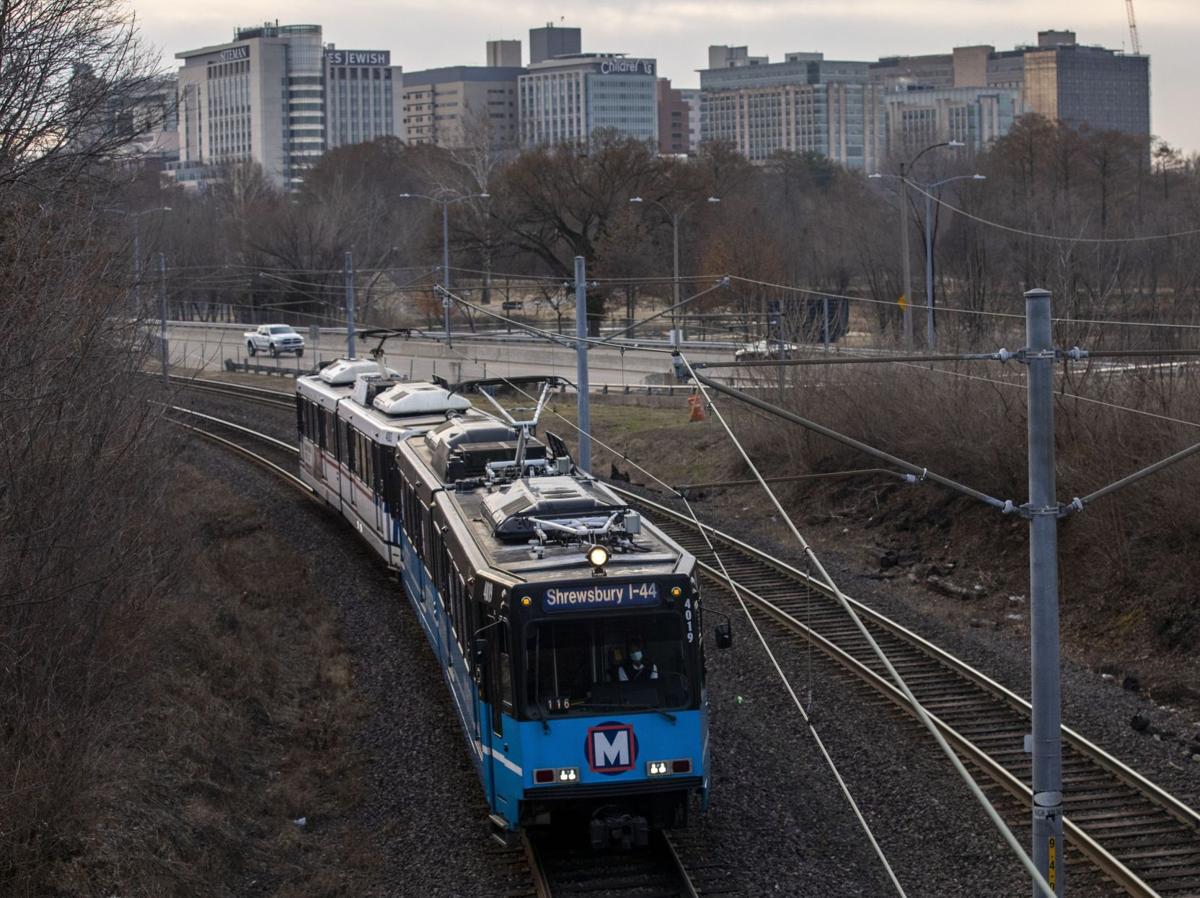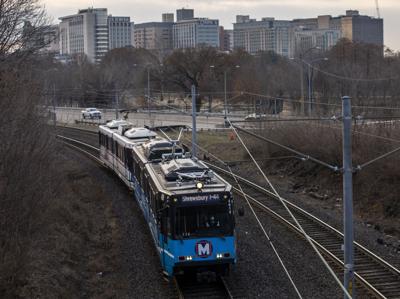Tishaura Jones turned my attention back to mass transit.
The cityŌĆÖs treasurer is making her second run to be the mayor of ├█č┐┤½├Į. This time she is the apparent frontrunner against Alderman Cara Spencer. Voters will decide April 6.
One of the values of election campaigns is forcing candidates to take positions on what they will do if elected. In the mayorŌĆÖs race, Spencer drove the news cycle last week by releasing for how she would spend the $500 million the city expects to get from President Joe BidenŌĆÖs American Rescue Plan. SpencerŌĆÖs plan focuses on spending in housing stabilization and workforce development. In response to a reporterŌĆÖs questions, a Jones spokesman mentioned mass transit as one area of investment.
My first year at the Post-Dispatch ŌĆö in 2008 ŌĆö the East-West Gateway Council of Governments produced of the feasibility of the Northside-Southside MetroLink expansion that would turn the cityŌĆÖs underused transit system into one that more effectively connected people to jobs, particularly in high-poverty areas of the city.
People are also reading…
Ten years later, with little progress having been made, the study was updated. As long as IŌĆÖve been writing about transit in ├█č┐┤½├Į, the MetroLink expansion has been discussed, studied and then put on the shelf to gather dust, as something that was too expensive, too unlikely.
ItŌĆÖs possible that the changes that. There are restrictions on how the money can be spent ŌĆö and transit infrastructure isnŌĆÖt one of the outlined uses of the money. But some of the money could be used to shore up existing transit accounts in the city and county, if those funds suffered through the pandemic, and like most government revenue accounts, they did.
But even with collections lagging in the past year, both the city and the county are sitting on millions of dollars waiting to be spent on transit expansion. ThatŌĆÖs because ├█č┐┤½├Į County voters approved a half-cent sales tax dedicated to transit in 2010. And in 2017, voters in the city of ├█č┐┤½├Į approved a similar tax. Spurred by JonesŌĆÖ answer, I found out both accounts are bursting with cash.
Since the cityŌĆÖs Proposition 1 passed, it has raised $31.5 million, and none of that money has been spent. Yearly revenue had been averaging $12 million per year pre-pandemic but has dropped. ├█č┐┤½├Į CountyŌĆÖs Proposition A fund is sitting on about $111 million. Pre-pandemic, the fund produced about $89 million a year.
To be clear, neither fund has anywhere near enough money to come up with the estimated $1 billion cost for the MetroLink expansion just through the city. But in a process that generally involves pairing a recurring government income source with private and federal dollars, the transit money being raised by the city and the county is not pocket change. And it could be fortuitous as Congress begins a discussion of an infrastructure bill meant to generate massive economic investment throughout the country.
Both Spencer and Jones have long been proponents of transit expansion, so there is a good chance the next mayor can work with ├█č┐┤½├Į County Executive Sam Page to combine efforts to expand transit in the region. Page told me last week: ŌĆ£I think itŌĆÖs past time to take a broader look at public transportation in the region. If we can use federal funds to do that, so much the better.ŌĆØ
The Ferguson Commission long ago established improving as one of the key areas to increase opportunity for Black people living in poverty in the city. Short of yet another feasibility study, not much has been done to move in that direction as both the city and county sit on a mountain of transit cash, with potentially more on the way. Whether itŌĆÖs the more expensive MetroLink route, or some form of bus rapid transit that improves access along the north-south corridor (or both), itŌĆÖs high time the city of ├█č┐┤½├Į and its government partners stopped talking about transit like it is some future mirage. They should take tangible steps to carry out the long-discussed vision to invest in the ability of residents to get to jobs, schools and other opportunities.
Perhaps the combination of the mayorŌĆÖs election and a Congressional focus on infrastructure spending is the right venue to bring transit back to the forefront.





















